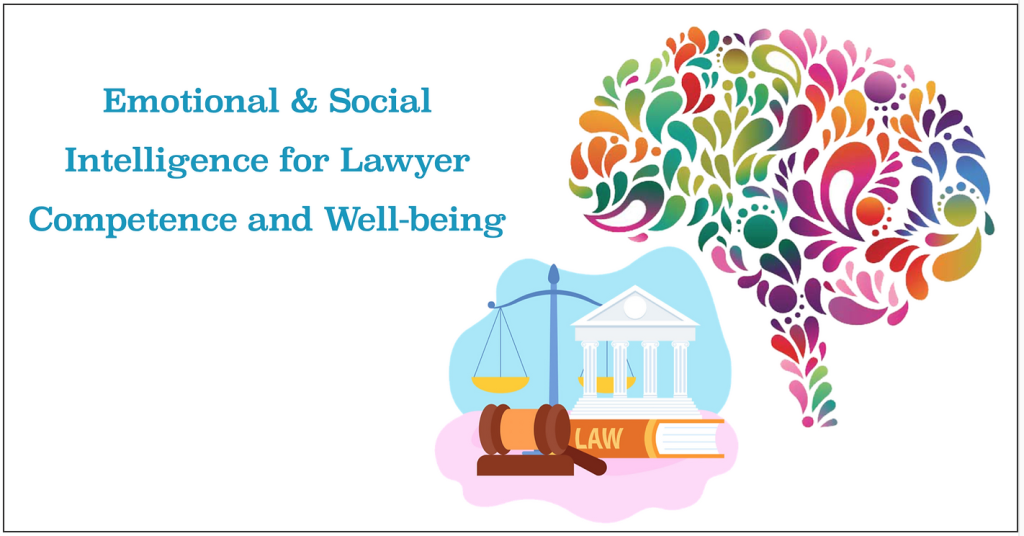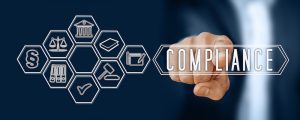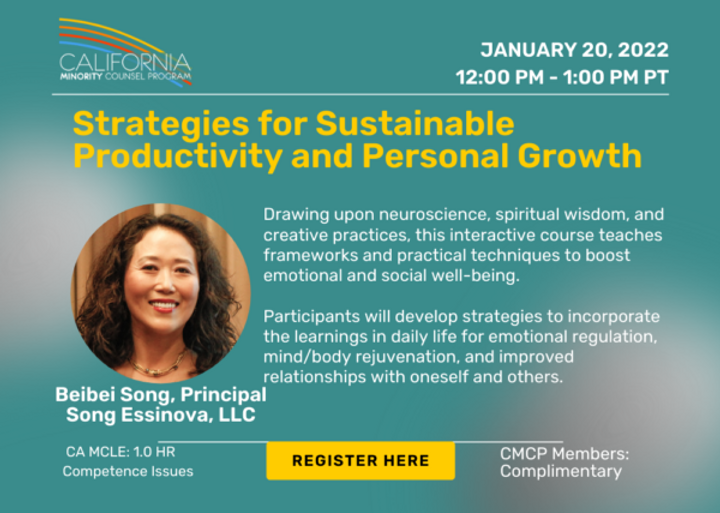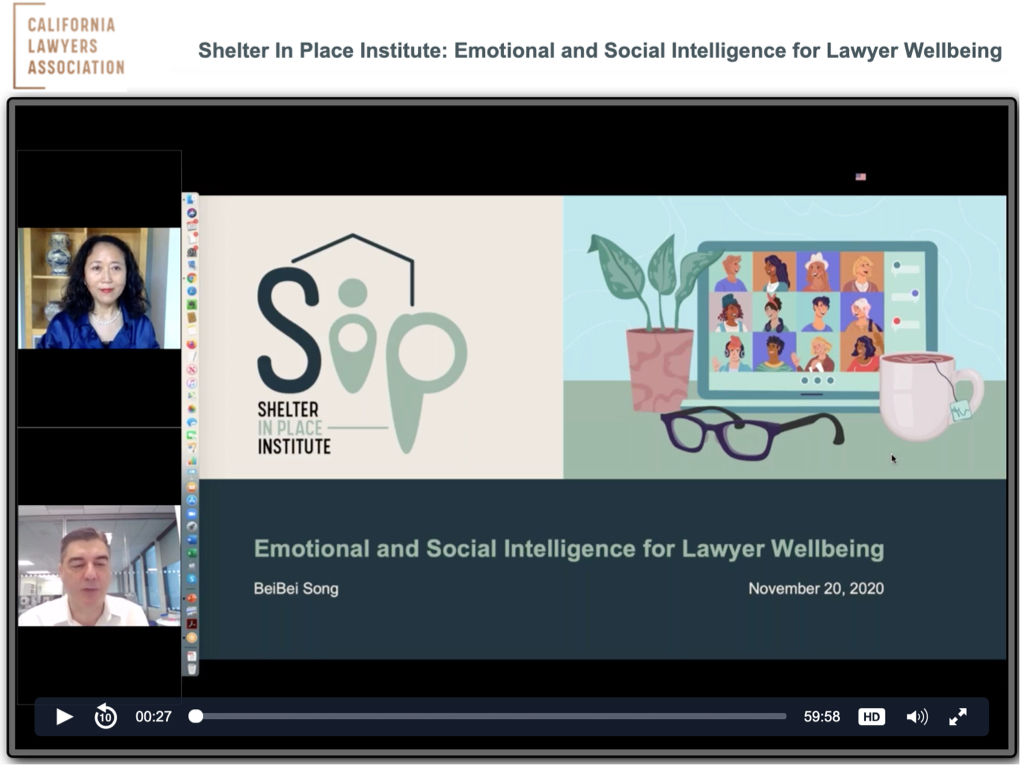Be It Alcohol, Drugs or Apps – Addiction and Its Connection to Mental Health
The course directly addresses mental and physical health issues prevalent in the legal community due to nature of the work and cultural environment of the profession. It identifies major mental disorders and their manifestations in the legal profession, which can impair decision-making, problem-solving, risk management and general day-to-day functioning, making clients, people and businesses vulnerable.
Drawing upon contemporary neuro, physiological and social sciences, the course also provides fundamental education to State Bar members on common types of addiction, including both substance abuse and increasingly prevalent digital addiction. With explanation of underlying neurological processes, the course offers better understanding of various addictions and resources for their identification and detection.

Drawing upon neuroscience, social psychology, spiritual wisdom and creative practices, this interactive course sheds light on the inner workings of the emotional brain and teaches frameworks and practical techniques to boost emotional and social intelligence – critical dimensions of human well-being.
Through a combination of lecture, exercises and experiential activities, it engages participants to develop their own actionable strategies to incorporate the learnings in daily life for emotional regulation, mind/body rejuvenation and an improved relationship with both oneself and others in their legal practice, as well as sustainable productivity and personal growth.


“This was a great program. Probably the best on this subject! I really enjoyed the class. You presented a lot of information in a short time but it was very well organized and presented.”

“We always talk about lawyer mental health but it’s usually with respect to substance abuse. I appreciated your focus on the underlying elements that may lead us to that.”

“The program was very well presented with a great deal of very interesting and useful information. It was very helpful and a new method of approaching a topic that is very necessary to our profession.”

“Easily one of the best social and emotional intelligence training courses for professionals and lawyers available. BeiBei Song engagingly instructs on the science of emotional and social intelligence and provides tools to help change how we understand ourselves, and how we interact with others.”

With a few exceptions, all active State Bar licensees must complete 25 hours of Minimum Continuing Legal Education (MCLE) in their three-year compliance periods and file a report with the State Bar. The State Bar audits compliance with MCLE requirements. Find your MCLE compliance group.
For the compliance period ending January 31, 2025, and subject to the proportional requirements (State Bar Rule 2.72(C)(2)(c) and exceptions (State Bar Rule 2.54) licensees are required to complete and report 25 hours of MCLE within the three-year compliance period as follows:

